Expanding a child’s vocabulary is crucial for language development and reading comprehension.
However, introducing longer words, such as five-syllable ones, can be challenging for young learners.
This blog post will provide a comprehensive list of 38 popular five-syllable words suitable for children’s literature, along with engaging activities and tips to help kids learn and master these words effectively.
By the end of this post, you’ll have a valuable resource of five-syllable words to incorporate into your child’s reading and writing and practical strategies to make the learning process enjoyable and impactful.
Academic and Scientific Terms
1. Abbreviation
- Meaning: A shortened form of a word or phrase.
- Pronunciation: /ˌæb.rɪˈveɪ.ʃən/’
- Example: “Dr.” is the abbreviation for “Doctor.”
Abbreviations are commonly used in academic writing to save space and improve readability. They allow writers to convey complex ideas more concisely, making the text easier to scan and understand.
2. Appendicitis
- Meaning: Inflammation of the appendix, often requiring surgical removal.
- Pronunciation: /əˌpen.dəˈsaɪ.tɪs/
- Example: She was diagnosed with appendicitis and had surgery to remove her appendix.
Appendicitis is a medical condition that can be potentially serious if left untreated. It occurs when the appendix becomes inflamed, causing severe abdominal pain and other symptoms.
3. Astrological
- Meaning: Relating to the study of celestial bodies and their influence on human affairs.
- Pronunciation: /ˌæs.trəˈlɒdʒ.ɪ.kəl/
- Example: They consulted astrological charts to find a favorable day for the wedding.
Astrological principles have been used for centuries in various cultures to predict events, interpret personalities, and guide important decisions based on the positions of planets and stars.
4. Accumulation
- Meaning: The gradual gathering or increasing of something over time.
- Pronunciation: /əˌkjuː.mjʊˈleɪ.ʃən/
- Example: The accumulation of data provided valuable insights into climate change.
Accumulation is a crucial concept in scientific research, as the collection and analysis of data over extended periods can reveal patterns, trends, and insights that would otherwise be undetectable.
5. Autonomical
- Meaning: Operating independently or with autonomy.
- Pronunciation: /ˌɔː.təˈnɒm.ɪ.kəl/
- Example: The university’s faculty is largely autonomical in deciding its courses.
Autonomical systems or processes function independently without external control or influence.
This characteristic is highly valued in academic and research settings, promoting freedom of thought and innovation.
Behavior and Psychology
6. Anticipation
- Meaning: The feeling of looking forward to something with pleasure and preparation.
- Pronunciation: /ænˌtɪ.sɪˈpeɪ.ʃən/
- Example: The anticipation of his arrival made her feel excited.
Anticipation is a powerful emotional state that can significantly influence human behavior and decision-making.
It is often accompanied by excitement, eagerness, and preparation for an upcoming event or experience.
7. Authenticity
- Meaning: The quality of being genuine or true.
- Pronunciation: /ɔːˌθenˈtɪ.sɪ.ti/
- Example: Experts confirmed the authenticity of the painting.
Authenticity is highly valued in psychology and human behavior, as it reflects a person’s ability to be true to themselves and their values, promoting a sense of integrity and self-acceptance.
8. Behaviorally
- Meaning: Pertaining to the way someone behaves.
- Pronunciation: /bɪˈheɪ.vjə.rəl.i/
- Example: The child’s behaviorally challenged actions required careful management.
Behavioral studies examine how individuals act and respond to various stimuli and situations, providing insights into human nature, decision-making processes, and potential interventions.
9. Communicative
- Meaning: Able to communicate effectively or promote communication.
- Pronunciation: /kəˈmjuː.nɪ.kə.tɪv/
- Example: Her communicative style helped resolve conflicts at work.
Effective communication is essential in interpersonal relationships, conflict resolution, and achieving mutually beneficial outcomes.
Developing communicative skills can enhance one’s ability to understand and be understood by others.
10. Complicatedness
- Meaning: The state of being complex or involved.
- Pronunciation: /kəmˈplɪ.kə.tɪd.nəs/
- Example: The issue’s complexity made it difficult to find a solution.
In psychology and behavior, complexity often arises from the intricate interplay of various factors, such as cognitive processes, emotional responses, environmental influences, and individual differences, making it challenging to identify simple solutions.
Cultural and Societal Concepts
11. Bibliography
- Meaning: A list of the books of a specific author or publisher or in a particular subject.
- Pronunciation: /ˌbɪb.liˈɒɡ.rə.fi/
- Example: The bibliography at the end of the thesis lists all the sources used by the researcher.
Bibliographies are essential in academic and research work, as they provide a comprehensive record of the sources consulted, allowing readers to verify the information and explore the subject further.
12. Bicentennial
- Meaning: The two-hundredth anniversary of a significant event.
- Pronunciation: /ˌbaɪ.senˈtiː.ni.əl/
- Example: The city celebrated its bicentennial with fireworks and a parade.
Bicentennial celebrations are often grand affairs, marking a milestone in a nation’s, city’s, or institution’s history and providing an opportunity to reflect on the past while looking ahead to the future.
13. Environmental
- Meaning: Pertaining to the natural environment, including protection and preservation efforts.
- Pronunciation: /ɪnˌvaɪ.rənˈmen.təl/
- Example: Environmental laws have become stricter to prevent pollution.
Environmental concerns have gained increasing prominence in recent decades as individuals and societies recognize the importance of protecting and sustainably managing natural resources for the well-being of present and future generations.
14. Geographical
- Meaning: Relating to a region’s natural features, population, and industries.
- Pronunciation: /ˌdʒiː.əˈɡræf.ɪ.kəl/
- Example: The geographical layout of the area makes it prone to earthquakes.
Geographical factors are crucial in shaping a region’s cultural, economic, and social aspects, influencing everything from settlement patterns to transportation networks and resource distribution.
15. Institutional
- Meaning: Relating to large and important organizations, such as universities or banks.
- Pronunciation: /ˌɪn.stɪˈtjuː.ʃə.nəl/
- Example: The reform aimed to address corruption at an institutional level.
Institutional structures and policies can have far-reaching impacts on society, necessitating periodic review and reform to ensure transparency, accountability, and alignment with societal values and needs.
Descriptive and Expressive Terms
16. Dramatically
- Meaning: In a very striking or noticeable manner.
- Pronunciation: /drəˈmæt.ɪ.kəl.i/
- Example: Sales increased dramatically after the new advertising campaign.
The word “dramatically” conveys a sense of intensity and significance.
It highlights the remarkable nature of an event or change and often captures the audience’s attention.
17. Immediately
- Meaning: Without any delay; instantly.
- Pronunciation: /ɪˈmiː.di.ət.li/
- Example: She responded immediately to the urgent call.
In certain situations, reacting immediately is crucial, as any delay could have serious consequences or missed opportunities, underscoring the importance of prompt action.
18. Hippopotamus
- Meaning: A large herbivorous mammal native to African rivers and lakes.
- Pronunciation: /ˌhɪp.əˈpɒt.ə.məs/
- Example: The hippopotamus is known for its large mouth and territorial nature.
The hippopotamus is an iconic and fascinating animal.
Its massive size and unique adaptations to its aquatic environment capture the imagination of children and adults alike.
19. Incomparable
- Meaning: Better or greater than any other.
- Pronunciation: /ɪnˈkɒm.pər.ə.bl/
- Example: Her talent in the arts is simply incomparable.
The word “incomparable” conveys a sense of uniqueness and superiority, setting something or someone apart from all others and acknowledging their exceptional qualities or abilities.
20. Unpredictable
- Meaning: Not able to be predicted or foreseen.
- Pronunciation: /ˌʌn.prɪˈdɪk.tə.bl/
- Example: Weather patterns in the region are highly unpredictable.
Unpredictability can be exciting and challenging, as it introduces an element of uncertainty and requires flexibility and adaptability to navigate changing circumstances effectively.
Historical and Geopolitical
21. Babylonian
- Meaning: Pertaining to or characteristic of the ancient city or empire of Babylon.
- Pronunciation: /ˌbæb.ɪˈloʊ.ni.ən/
- Example: The Babylonian civilization was known for its contributions to law and architecture.
The Babylonian Empire, centered in Mesopotamia, left a lasting cultural and architectural legacy that fascinates historians and archaeologists.
22. Palestinian
- Meaning: Relating to the geographic area of Palestine or its people.
- Pronunciation: /ˌpæl.əˈstiː.ni.ən/
- Example: The Palestinian territories include the West Bank and Gaza Strip.
The Palestinian people and their struggle for statehood have been a central issue in the complex geopolitics of the Middle East for decades.
23. Scandinavia
- Meaning: A region in Northern Europe, typically including Denmark, Norway, and Sweden.
- Pronunciation: /ˌskæn.dɪˈneɪ.vi.ə/
- Example: Scandinavia is renowned for its progressive social policies.
The Scandinavian countries are often cited as models for their high living standards, commitment to equality, and emphasis on sustainability.
24. Washingtonian
- Meaning: Relating to Washington, D.C., or the state of Washington in the United States.
- Pronunciation: /ˌwɒʃ.ɪŋˈtoʊ.ni.ən/
- Example: The Washingtonian magazine frequently covers political news.
Washington, D.C., the capital of the United States, is a hub for political discourse, policymaking, and influential media outlets.
25. Yugoslavian
- Meaning: Pertaining to the former country of Yugoslavia in Southeast Europe.
- Pronunciation: /ˌjuː.ɡoʊˈslɑː.vi.ən/
- Example: Yugoslavian history is marked by its diversity and subsequent conflicts.
The breakup of Yugoslavia in the 1990s was a pivotal event in modern European history, highlighting the challenges of reconciling ethnic and national identities.
Medical and Biological
26. Idiopathic
- Meaning: Relating to or denoting any disease or condition that arises spontaneously or for unknown cause.
- Pronunciation: /ˌɪd.i.əˈpæθ.ɪk/
- Example: The cause of her idiopathic arthritis is still undetermined.
Idiopathic conditions can be frustrating for both patients and medical professionals, as the lack of a clear cause can make treatment more challenging.
27. Ichthyosaurus
- Meaning: An extinct marine reptile with a fish-like shape, common in Mesozoic times.
- Pronunciation: /ˌɪk.θi.əˈsɔː.rəs/
- Example: Fossils of Ichthyosaurus have been found in many European countries.
The Ichthyosaurus is a fascinating example of the diverse and often bizarre life forms that existed during the dinosaur age, showcasing the wonders of evolution.
28. Paleontology
- Meaning: The branch of science concerned with fossil animals and plants.
- Pronunciation: /ˌpeɪ.lɪˈɒn.təl.ə.dʒi/
- Example: He studies paleontology to understand the prehistoric life on Earth.
Paleontology allows us to unravel the mysteries of the past, providing insights into the origins and evolution of life on our planet.
29. Micronutrient
- Meaning: A chemical element or substance required in trace amounts for living organisms’ normal growth and development.
- Pronunciation: /ˌmaɪ.krəˈnjuː.tri.ənt/
- Example: Iron and zinc are important micronutrients for human health.
While needed in small quantities, micronutrients play vital roles in various biological processes, and deficiencies can lead to significant health consequences.
30. Geometrical
- Meaning: Relating to geometry or according to its methods.
- Pronunciation: /ˌdʒiː.əˈmet.rɪ.kəl/
- Example: The artist used a geometrical design to create the illusion of depth.
Geometrical shapes and patterns are fundamental elements in art, architecture, and design, often used to create visual interest, balance, and harmony.
31. Kaleidoscope
- Meaning: Continually changing, shifting, or shimmering with colors and patterns.
- Pronunciation: /ˌkaɪ.ləˈdɒs.kə.pɪk/
- Example: Her kaleidoscopic dress caught everyone’s attention at the event.
The kaleidoscopic nature of certain phenomena, whether in fashion, nature, or other realms, can captivate and mesmerize, offering a constantly evolving visual experience.
32. Meteorology
- Meaning: Relating to the study of the atmosphere and weather.
- Pronunciation: /ˌmi.tɪ.ər.əˈlɒdʒ.ɪ.kəl/
- Example: Meteorological data is crucial for accurate weather forecasting.
Meteorological factors, such as temperature, humidity, and air pressure, significantly shape the Earth’s climate and local weather patterns.
33. Autobiography
- Meaning: A biography written by the subject about their own life.
- Pronunciation: /ˌɔː.tə.baɪ.əˈɡræf.ɪ.kəl/
- Example: The author’s autobiographical novel provided insights into her childhood experiences.
Autobiographical works offer a unique and personal perspective, allowing readers to understand an individual’s life journey and the events that shaped them.
34. Philanthropy
- Meaning: Donating money, resources, or time for charitable purposes.
- Pronunciation: /ˌfɪl.ənˈθrɒp.ɪk/
- Example: The philanthropic foundation aims to support education initiatives worldwide.
Philanthropic efforts are vital in addressing social issues, promoting human welfare, and creating positive change in communities.
35. Physiology
- Meaning: The study of the normal functioning of living organisms and their parts, including biological processes.
- Pronunciation: /ˌfɪz.i.əˈlɒdʒ.ɪ.kəl/
- Example: Regular exercise has numerous physiological benefits for overall health.
Physiological factors like metabolism, respiration, and circulation are essential components of human biology and are studied in various fields, including medicine and sports science.
36. Archaeology
- Meaning: The study of human history and prehistory through excavating sites and analyzing artifacts and other physical remains.
- Pronunciation: /ˌɑːr.ki.əˈlɒdʒ.ɪ.kəl/
- Example: The archaeological dig uncovered ancient pottery and tools from the Bronze Age.
Archaeological discoveries have illuminated past civilizations’ lives, cultures, and societies, providing invaluable insights into human history.
37. Entomological
- Meaning: Relating to the study of insects and their behavior.
- Pronunciation: /ˌen.tə.məˈlɒdʒ.ɪ.kəl/
- Example: Entomological research aims to understand the role of insects in ecosystems.
Entomological studies have practical applications in agriculture, pest control, and environmental conservation, as insects play a vital role in various ecological processes.
38. Anthropology
- Meaning: The study of human societies and cultures and their development.
- Pronunciation: /ˌæn.θrə.pəˈlɒdʒ.ɪ.kəl/
- Example: Anthropological research provides insights into the diversity of human cultures and traditions.
Anthropological perspectives offer a holistic understanding of human societies, encompassing social structures, belief systems, languages, and cultural practices.
Examples of Popular Children’s Books Using Five-Syllable Words
Children’s literature often employs five-syllable words to enrich the storytelling experience, adding depth and vivid imagery to the narratives.
These longer words can introduce young readers to more complex language while maintaining an engaging and accessible tone.
Let’s explore some beloved children’s books that effectively incorporate five-syllable words into their stories.
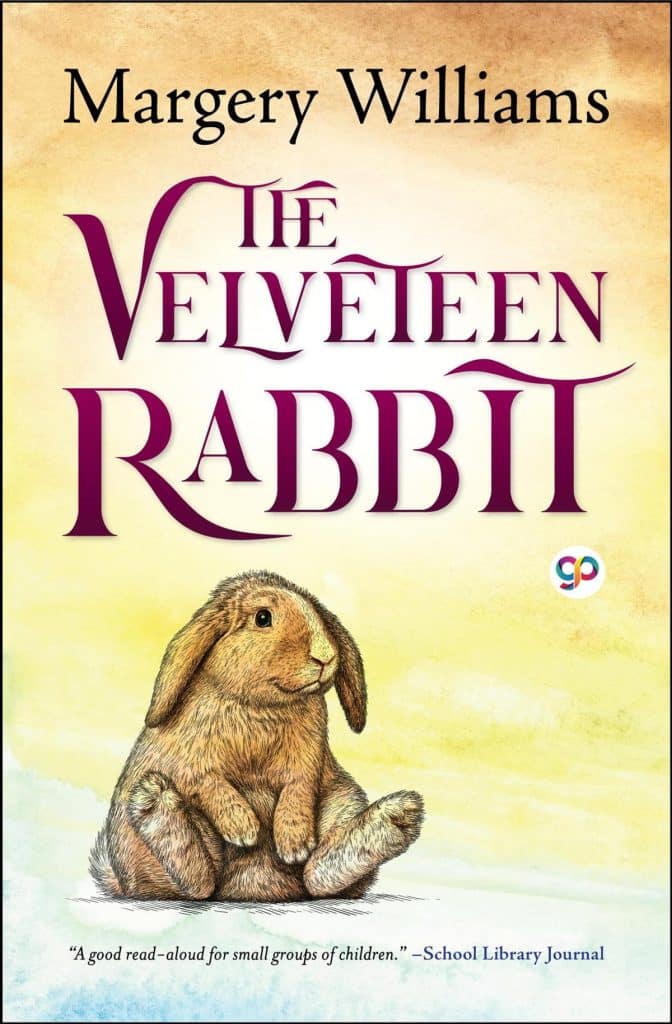
- “The Velveteen Rabbit” by Margery Williams is a timeless classic that uses words like “environmental” to vividly describe the settings and surroundings in which the beloved toy rabbit finds itself.
- For instance, when describing the nursery where the Velveteen Rabbit resides, Williams writes:
“The environmental warmth and coziness of the nursery made it a perfect place for the toys to come alive at night.”
- Using “environmental” in this context helps paint a vivid picture of the nurturing atmosphere, allowing young readers to immerse themselves in the story’s magical world.
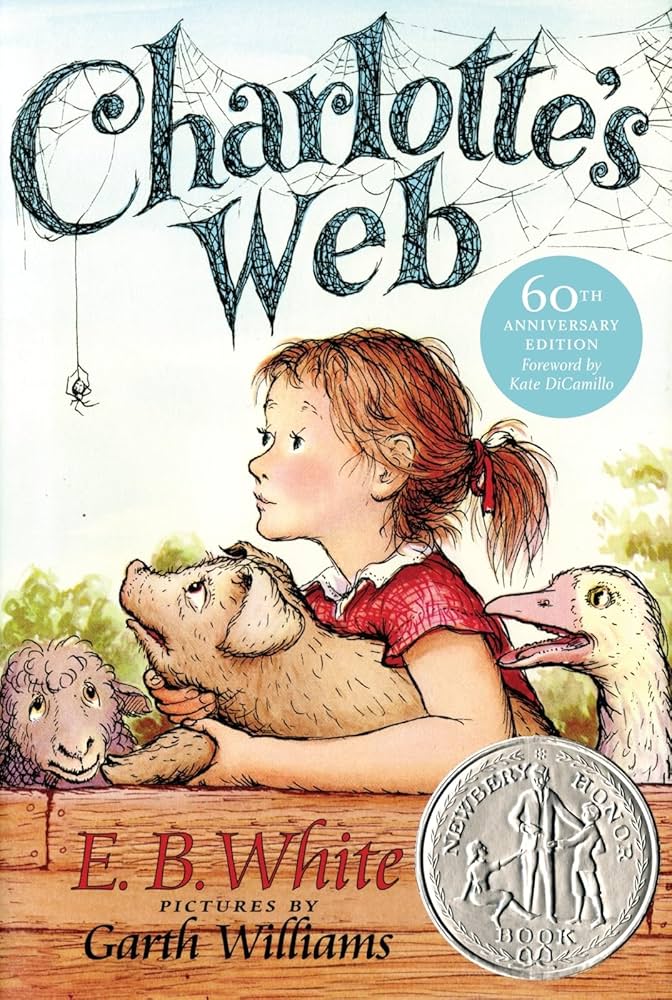
- E.B. White’s “Charlotte’s Web” is renowned for its rich, descriptive language, using five-syllable words like “sensationalism.”
- When describing the excitement surrounding Charlotte the spider’s extraordinary web-writing talents, White writes:
“The sensationalism of the miracle had brought reporters and photographers from all over the country to the Zuckerman farm.”
This sophisticated word choice not only adds depth to the narrative but also naturally and engagingly introduces young readers to more advanced vocabulary.

- The beloved “Harry Potter Series” by J.K. Rowling is a literary phenomenon that incorporates a wide range of five-syllable words, such as “institutional” and “geometrical,” to enhance the magical world of Hogwarts and its surrounding environments.
- For example, when describing the school’s intricate architecture, Rowling writes:
“The institutional grandeur of the castle’s geometrical towers and turrets filled the young witches and wizards with awe.”
Rowling transports readers into a richly detailed and immersive world by using these longer words, fostering their imagination and vocabulary development.
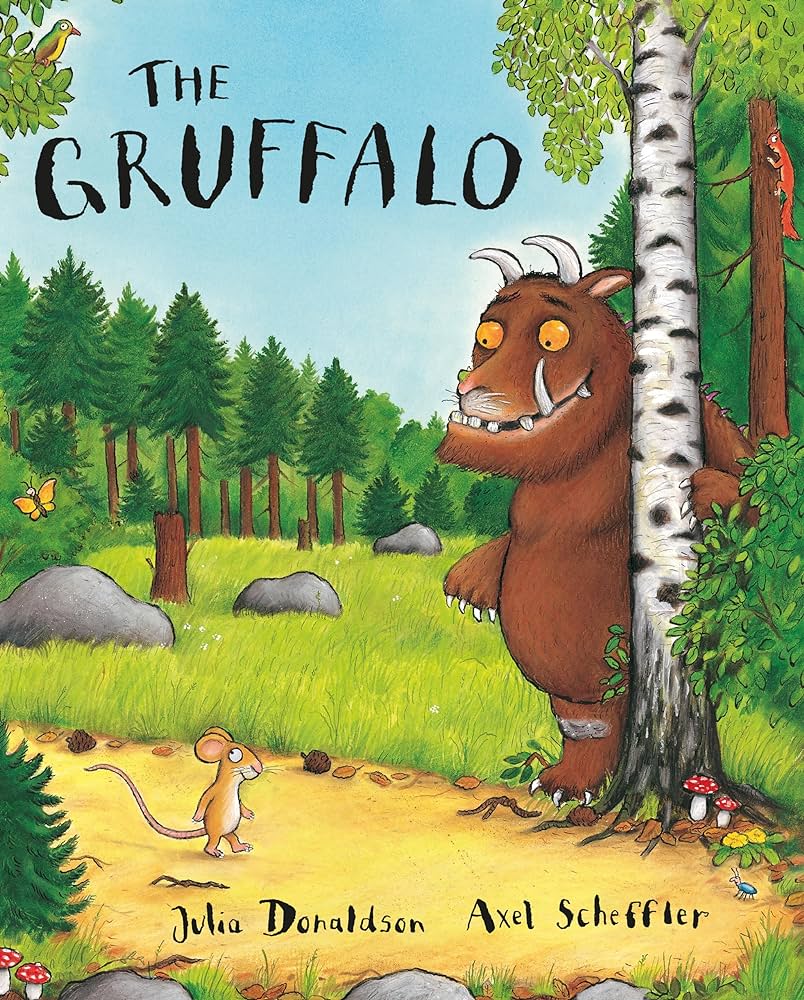
- Julia Donaldson’s “The Gruffalo” is a delightful picture book that employs the word “hieroglyphic” to describe scenes from the story.
- For instance, when the mouse encounters the Gruffalo’s footprints, Donaldson writes:
“The hieroglyphic markings in the mud revealed the presence of a formidable creature.”
- This imaginative use of the word “hieroglyphic” adds a sense of mystery and intrigue and playfully and engagingly introduces young readers to a sophisticated term.
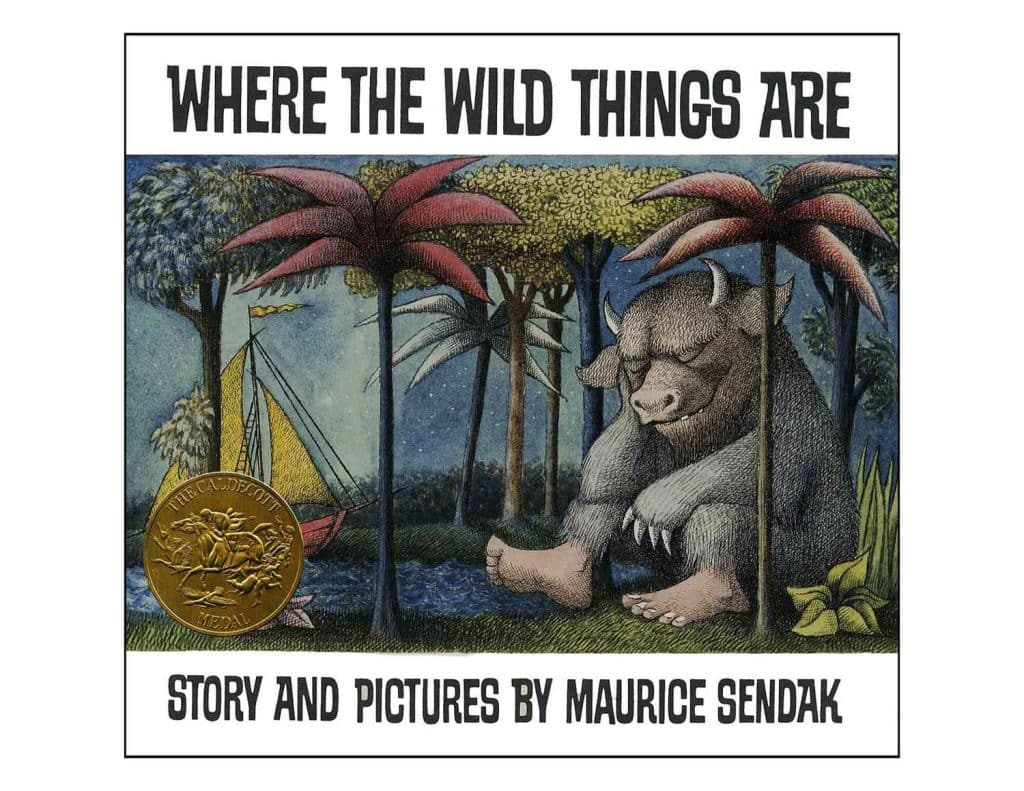
- In Maurice Sendak’s beloved classic “Where the Wild Things Are,” the author uses the word “psychologically” to deepen the story’s emotional impact.
- When describing the young protagonist Max’s journey to the land of the Wild Things,
Sendak writes:
“The psychologically transformative experience of becoming the king of the Wild Things allowed Max to confront his inner fears and emotions.”
By incorporating this five-syllable word, Sendak invites young readers to explore complex emotional themes while expanding their vocabulary.
These examples demonstrate how beloved children’s books can seamlessly incorporate five-syllable words into their narratives, enhancing the storytelling experience and introducing young readers to more advanced language concepts.
By exposing children to diverse vocabulary, these books foster literacy skills and ignite curiosity and a love for language that can last a lifetime.
Educational Activities Involving Five-Syllable Words
| Activity | Description | Example |
|---|---|---|
| Scavenger Hunt | Identify five-syllable words in context. | Find “environmental” in a nature book. |
| Bean Bag Toss | Discuss the meaning of the tossed word. | Toss “Scandinavia,” discuss culture. |
| Picture Sorting | Categorize images by associated words. | Sort an image of a hematologist. |
Engaging in educational activities incorporating five-syllable words can be a powerful tool for enhancing language skills and fostering a love for learning in children.
- One such activity is the “Syllable Scavenger Hunt,” where students identify and explore words with five syllables within a specific context, such as a classroom setting or a literary work.
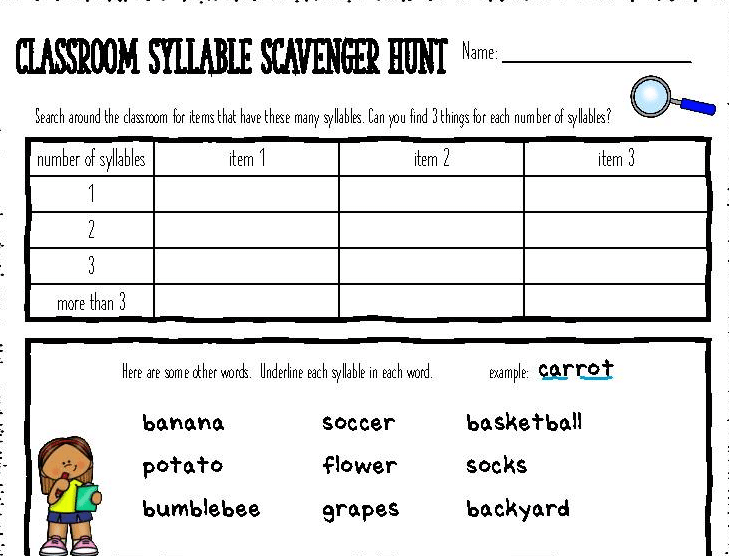
- Another interactive approach is the “Syllable Bean Bag Toss,” where students toss a bean bag representing a five-syllable word and then discuss its meaning and usage.
- For instance, a child might toss the bean bag and say, “Scandinavia,” prompting a discussion about the region’s cultural significance.
- Furthermore, “Picture Sorting” activities can reinforce understanding of five-syllable words by having students categorize images based on their associated words.
- For example, a picture of a hematologist could be placed in the “Hematologist” category, helping students grasp the concept and its real-world applications.
These educational activities enhance vocabulary skills and foster critical thinking abilities as students learn to recognize, comprehend, and apply five-syllable words in meaningful contexts.
By making learning interactive and engaging, these activities can cultivate a genuine interest in language and the world around them.
Summing Up
Learning five-syllable words can be a powerful tool for enhancing a child’s language skills and fostering a love for learning.
These longer, more complex words expand vocabularies and encourage imagination and curiosity.
By integrating engaging activities and examples incorporating five-syllable words like “hippopotamus” and “anticipation,” educators and parents can make the learning process enjoyable and impactful for young learners.
So, let’s embrace these fascinating words and encourage our children to explore the richness of language through memorable stories and interactive exercises.
It’s an opportunity to spark their curiosity and set them on a path of lifelong learning.
